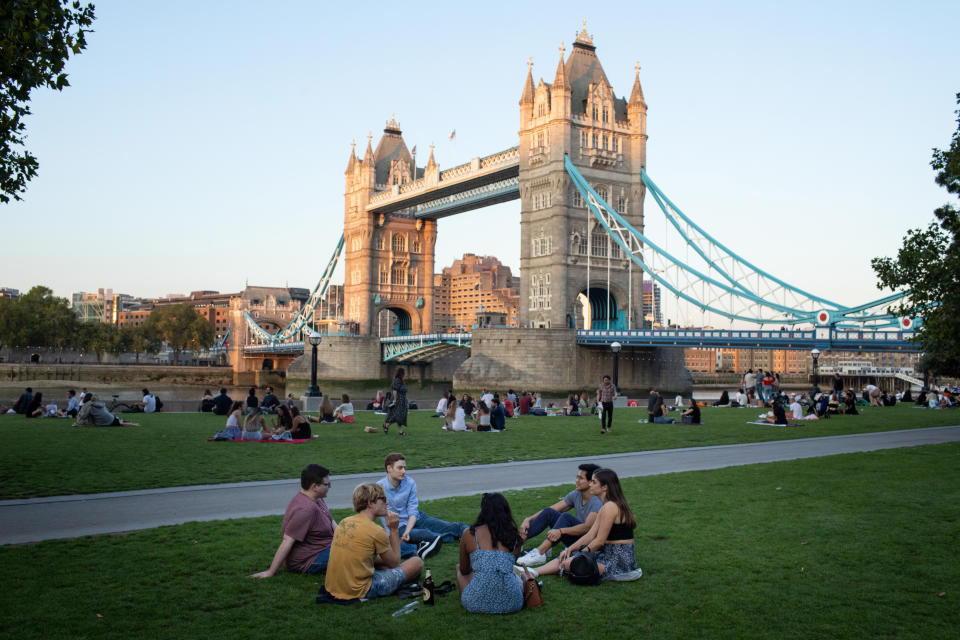Rule of six and 10pm curfew likely had 'zero effect' on transmission, study suggests

The rule of six and the 10pm pubs curfew are likely to have had “zero effect” on coronavirus transmission in England, a study has claimed.
The study by the London School for Hygiene and Tropical Medicine (LSHTM) examined the impact of both measures, which were introduced last month.
It interviewed thousands of individuals to assess if their contacts had been reduced by the rule of six, working from home and the 10pm curfew on pubs and restaurants.
It found that 42% of the 3,222 individuals it surveyed about the rule of six had the same amount of contacts before and after the measure was introduced.
Just over three out of ten (31%) reduced their contacts, while 26% saw more people after the rule was introduced.
Watch: MPs vote in favour of 'rule of six' regulations in England
Researchers interviewed 1,868 people about the 10pm pubs curfew and found the data was “consistent with no change in other contacts”.
When asked about the 10pm closure, 50% said their number of contacts had remained the same, while 25% said they had decreased and 24% said they had increased.
In its conclusion, the authors of the study wrote: “We determine that the rule of six and encouraging people to work from home has seen the average person reduce contacts but these reductions are likely small.
“There was little suggestion that 10pm closure has affected the number of contacts that participants make outside home, work and school.
“In contrast to national restrictions, there was a strong suggestion that local restrictions reduced the number of contacts individuals make outside of work and school, though again, this effect was small in comparison to the national lockdown.”

The study has yet to be peer-reviewed.
The rule of six was introduced on 14 September and was followed 10 days later by the pubs curfew.
One government science adviser said the rule of six laws “did not go far enough”.
Earlier this month, it emerged the government’s own scientific advisers had warned that the 10pm curfew would have only a “marginal impact” on the spread of coronavirus.
There has been criticism that Boris Johnson “never discussed” the curfew with his science advisers, one of whom described the plan as “fairly trivial” and said it would have a “very small impact on the epidemic”.
Watch: Can you catch coronavirus twice?
Coronavirus: what happened today
Click here to sign up to the latest news and information with our daily Catch-up newsletter

 Yahoo Finance
Yahoo Finance 

